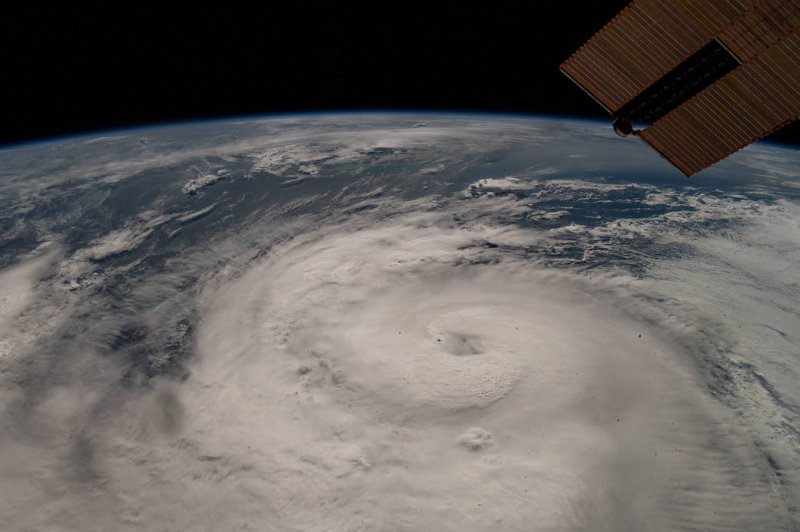A new study from Berlin-based Climate Analytics says extreme hurricane seasons have been made twice as likely by global warming of the oceans. Photo by Mark Garcia/NASA
April 13 (UPI) -- Exceptionally intense Atlantic tropical hurricane seasons are twice as likely as they were in the 1980's due to global warming, according to a new study by Berlin-based Climate Analytics.
The research, published Wednesday in the journal Weather Climate Dynamics, found that for the year 2020 extreme Atlantic hurricane seasons were made twice as likely by ocean warming.
"While the attribution of individual tropical cyclone events remains difficult, there can be no doubt that climate change is creating more intense storms," study author Peter Pfleiderer said in a press release.
The researchers found, using a novel weather-pattern-based statistical model, that a "forced warming trend" in Atlantic sea surface temperature, or SST, increases from 1982-2020 doubled the probably of "extremely active tropical cyclone seasons."
Human-caused climate change caused tropical storms and hurricanes to dump up to 10% more rain in 2020 compared to those during the pre-industrial era, according to a separate study released Tuesday.
The new study said, "There is increasing consensus in the scientific literature that the number of tropical cyclones might not or only moderately increase, while the number of most intense storms would increase substantially."
The research shows that Atlantic tropical cyclone activity has increased and that increase "can be robustly ascribed to variations in atmospheric circulation as well as sea surface temperature increase."
"Our findings indicate that warming SSTs over the tropical Atlantic might have already contributed significantly to more extreme tropical cyclone seasons and thereby to the fatalities, destruction and trillion dollar losses that these cyclones have caused over the last four decades," the study concluded.
The study said to minimize future risks, "stringent emission reductions in line with achieving the goals of the Paris Agreement would be required."
"Our results do not imply that increasing sea-surface temperatures lead to more tropical cyclones -- but point toward a trend of more intense storms and therefore more extreme outcomes for seasons with many tropical cyclone," Pfleiderer said.















